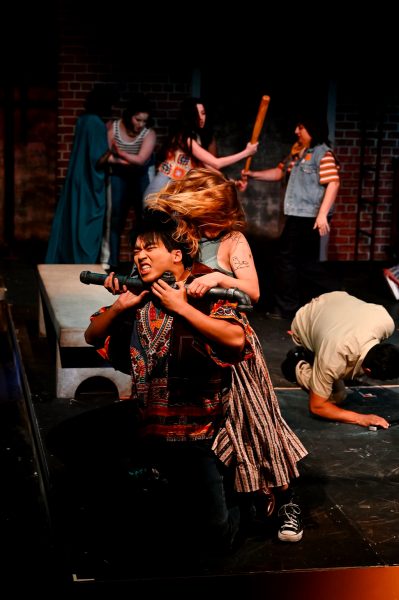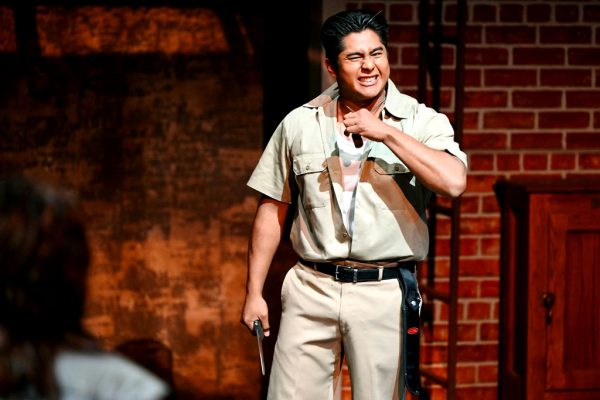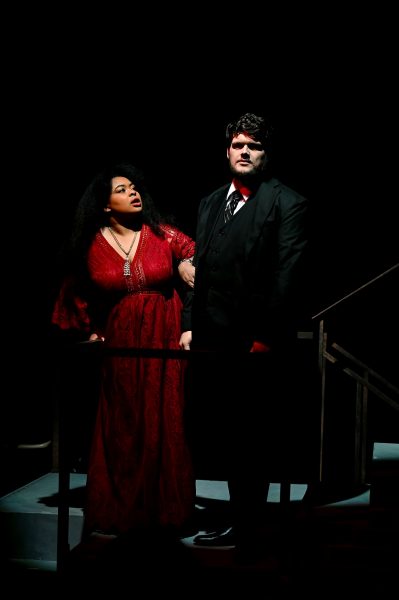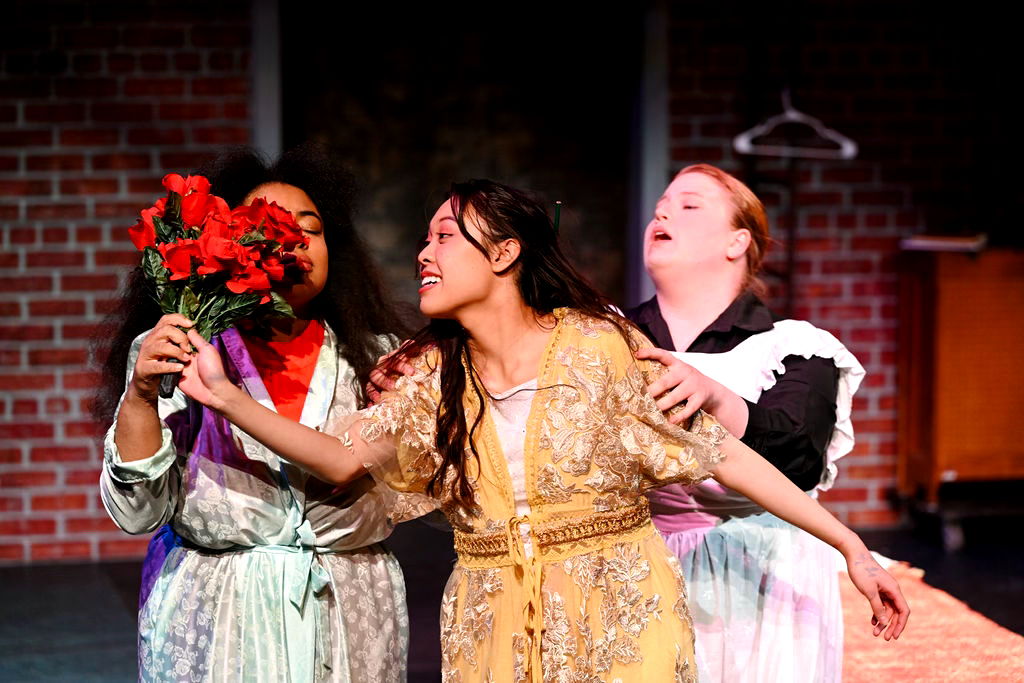The ruffling sound of the radio echoes throughout the room. Mentions of the death of JFK and the Vietnam War can be heard to transition the audience back into the early 1970s. Both the Capulets and the Montagues chaotically roam around the streets of Verona until the bright lights shine upon the stage and suddenly time is frozen. The FC Theater Arts Department presents a modern version to a Shakespeare classic in “Romeo and Juliet” that is filled with thrilling fights, playful comedy and epic romance.
William Shakespeare’s most popular play during the Elizabethan era, Romeo and Juliet, is a tragic story that centers around two young lovers who fall for one another, but come from feuding families, the Capulets and the Montagues. They must deal with their love being threatened thanks to an old-age grudge between their families, plagued by violence in the streets of Verona.
Romeo and Juliet’s tragic love story will come to life on Thursday, May 9 at 7:30 p.m. on opening night with a total of six performances for the next two weekends. Pre-sale tickets are available for $16, with tickets priced at $19 at the door of the Bronwyn Dodson theater.

The play sticks to the original plot that has captivated the attention of many readers over the centuries. The audience is introduced to all the original characters, starting off with Act 1. The feud between Sampson and Abraham causes all members of the feuding family to come out and embark in an intense confrontation. The screams over one another are littered with insults that highlight the deep hate both families have for each other.
In between this hatred, the two star-crossed lovers, Romeo and Juliet, meet one night at the Capulet’s party. Love at first sight brings both of their worlds together. Through the help of Juliet’s nurse and Friar John, the only two supportive adults, help the young couple to develop their love for one another.
Throughout this classic, the script highlights each of the character’s flaws that influence their choices, which eventually leads them to their own tragedy.
“The 1970s was a period that consisted of social upheaval and the civil rights movement and a big, bursting youth culture,” said production director Aubrey Saverino, “There was a lot of violence and unrest in the world and that seems true in Romeo and Juliet.”
Saverino’s play resonates with an era where people are trying to find their place in the world and fight for their right to be who they want to be, love who they want to love, and live the life they want to lead. An ideal that felt true to the era of the 70s.

The production of this play started off with casting for roles around end of December to rehearsals starting at the end of January. Over 30 FC students have taken part in the making of this production from actors, stage managers, sound designers and so forth. Saverino emphasizes on how much care and kindness there has been between one another to create a wonderful environment in the theater department.
This play had the assistance of professionals like fight director Michael Mueller, assistant director Christian Pinga, and intimacy director Rica Anonas. It took a village to bring this play to life and Saverino couldn’t be more grateful for everyone who took part in this production.
“This play has a lot of sex and violence in it. So we have made it a point to try to make the room as welcoming as possible,” said Saverino. “We take care of everybody so we can deal with these heavy topics in a way that allows us to breathe in this space.”
Although there are a lot of explicit scenes throughout the play, they blend perfectly as it gives an understanding of the time period with the sexual innuendo based on open sexuality during the 1970s. The catch phrase of “make love not war” was heavily portrayed during this era.
It keeps the audience entertained and still successfully brings out the main messages about breaking the status quo forced upon younger generations. These scenes also show how high driven passion can lead to severe consequences.
“I think it’s important to find all his faults because even if he’s the protagonist, his faults play heavily in what happens in the play and all the madness that occurs,” said Nicholas Martinez, who plays the role of Romeo.

Martinez shared how this past year has been his first time getting back into acting after taking a big break from theater during COVID. Although Shakespeare plays can be challenging and stressful, he was able to overcome it and enjoy portraying Romeo’s character.
“I was very trepidatious to take this role, but I’ve gotten to play Mercutio as a trans woman and playing this character has been very enlightening,” said Elli Luke, a third year theater major.
They express how as a black trans feminine actor, there are not a lot of roles made for them, and it is rare to get casted for these types of roles. They felt proud to be honoring the queer youth of the 1970s, where drag queens and trans women had to live undercover and weren’t allowed to live peaceful lives.
“It’s really interesting seeing lines that were written hundreds of years ago, get turned into something that can still scandalize people, make them blush, giggle, and kick their feet,” said Luke. “It has been really fun to explore an open sexuality and queer expression. I think Mercutio and I sit very similarly with that.”


